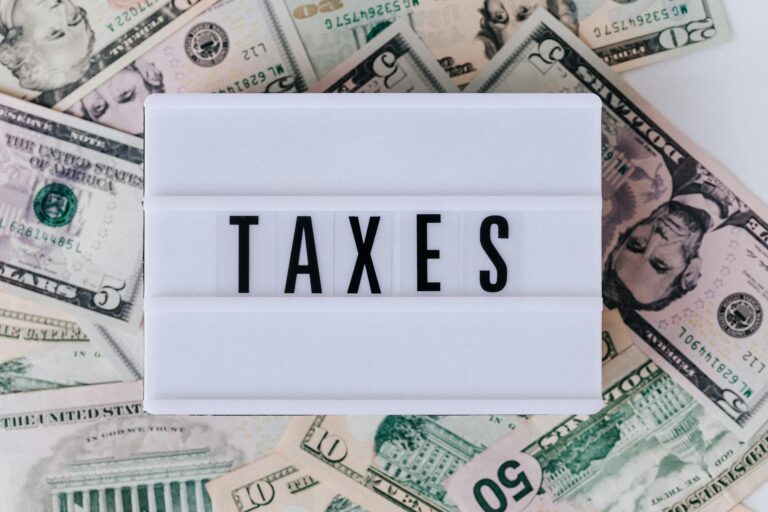The end of the year is upon us. It’s a great time to evaluate your systems; the process and tools you use to get organized—specifically finances. Deliberately setting up systems to organize your finances may save you money in ways you haven’t thought about. Unwanted late fees, overdraft fees, auto-withdrawals, and added interest rates are just a few of the dings you’ll avoid when your finances are organized.
First we want to remind you that feeling guilty about your lack of a great financial system will only paralyze you, and the truth is you’ll never be permanently organized. That’s like trying to eat “once and for all.” It’s something you work at continually. Knowing this, what systems can you put in place quickly to simplify your process for money exchange between you and those you need to pay?
- Online bill pay. One way to make sure all your bills are paid on time is to automate the process. Setting up an automatic bill pay system through an online banking site is fairly easy (keep in mind that some banks charge for this convenience). The tricky part is remembering what will come out when (see calendar alerts). Try it for a month or so and see if you’re good at anticipating auto-withdrawals for your bills. The obvious goal is to avoid overdraft fees while avoiding late
- Filing system. Most people these days keep some important documents online and others on paper. Regardless of where your documents are, you need to be able to quickly find what you need. If you use a filing cabinet of file box, make sure you label folders and immediately sort your documents. You will be annoyed with yourself if you have to sort out all of the receipts at tax time because you put everything in one big pile (at least it made it to the filing cabinet). And though going paperless can be your ultimate goal, don’t let that block or confuse your organization.
- Calendar alerts. You may want to use either a paper or online calendar to schedule bills. When you use an online calendar like Google, you can even set up online bill reminders and text alerts when bills are due. Color coding your expenses, bills, auto-withdrawals, and other financial events gives you even more benefits with this tool.
- Budget tools. Making and keeping a budget may be the single-most effective thing you can do for your finances. It’s easy to get overwhelmed, so we recommend keeping it as simple as tracking expenses (outgoing) and assets (incoming). Many online banking sites have a budgeting area and you can also download free budgeting software and templates. Your system may be as simple as a notebook or Excel spreadsheet, or as complex as digital bookkeeping tools like Quicken, Mint, or MoneyStream. Use what works for you and gets you moving in the right direction. Make sure to track your expenses for the first month and come back and correct any guesses you had made previously.
Systems and processes are an important part of any well-oiled financial strategy. When you do even a little organizing and automating with consistency, you’ll be headed in the right direction. Then, when you feel how much stress it relieves, you’ll be motivated to take another small step. Remember, creating your system isn’t so much about tracking your spending as it is organizing what needs to be paid and when. You want to operate in a deliberate spending mode. That way, regardless of your spending habits, you’ll know your power bill is due on Friday; so you’ll be more likely to initiate self-control. You’ll also gain self-confidence as you make choices to spend that extra money only on things you love.
Because stagnant money is bad, your next step is to automatically siphon off investment and savings money before planning for extra cash—which means deciding how you will to grow your money. You can create a system here too. We want to introduce you to one of the most amazing financial strategies available. Have you ever thought of insurance as an investment system? Paradigm Life knows that the right insurance products have potential for certainty, liquidity, and control when managing your wealth and saving for retirement. It’s the best way to take the money you would have put into your savings account—or even a 401k—and put it somewhere you can get a much larger return.
Allow us to share more with you about this better option to grow wealth and save for retirement while offering access to liquid cash. Yes, that’s right—access your cash while you grow your wealth—the best of both worlds. The first step to take 2 minutes to sign up for a FREE, extensive eCourse called Infinite 101®. You’ll receive access to video tutorials, articles, and podcasts. It literally costs you nothing to become educated on this ideal financial strategy and start changing your wealth paradigm!
Take advantage of this FREE resource by clicking below.
FAQ
Q: What is the main focus of the article on easy financial systems?
A: The article primarily focuses on introducing four straightforward financial systems—budgeting, saving, investing, and debt management—to help individuals take control of their finances and improve their financial well-being.
Q: Can you provide an overview of the four financial systems discussed in the article?
A: Certainly. The four financial systems include creating a budget to track expenses and income, establishing a systematic savings plan, exploring investment options to grow wealth, and implementing a debt management strategy to reduce and eliminate debt.
Q: How can individuals benefit from implementing these easy financial systems, as outlined in the article?
A: Individuals can benefit by gaining better financial control, reducing financial stress, building savings, growing their wealth through investments, and gradually eliminating debt, ultimately leading to improved financial stability and security.









